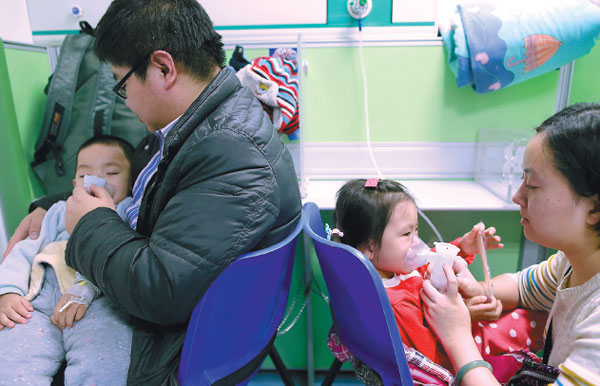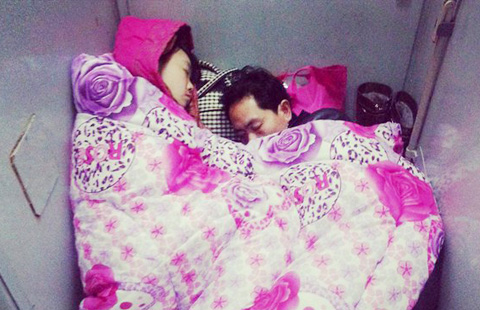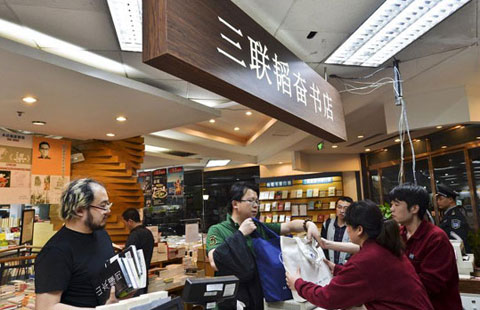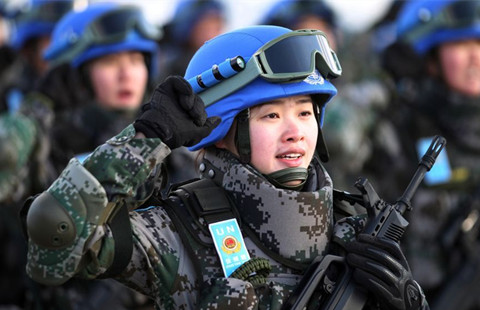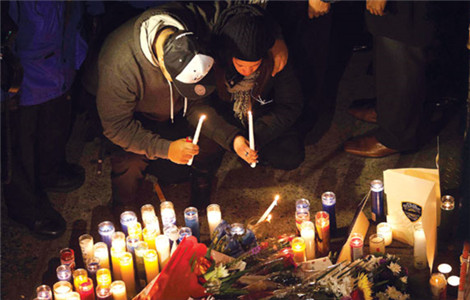Convenient clinics offer more time with doctors
Updated: 2014-12-23 07:52
By Wang Xiaodong(China Daily)
|
||||||||
Medical reform has been high on the agenda of the Beijing municipal government to improve services over the past year. China Daily staff reporter Wang Xiaodong has talked to people in all areas of the field to explore the progress achieved and the challenges ahead./Medical groups share resources, including staff, to provide better care for patients
When she needed medical attention, Yuan Shigui once had to take an hourlong bus ride to Chaoyang Hospital, the nearest large hospital to her home, wait for an hour or more to see a doctor - who could usually only spare two or three minutes - and then wait in another long line to get her medications.
Since late last year, Yuan has found a better choice. She can walk a few minutes from her home to a clinic in Beijing's Baiziwan community, where she can consult a doctor from a top hospital for nearly half an hour.
"Doctor Wan is very nice and professional, and I wish she could spend more time at the clinic, although I know she is very busy," said Yuan, a 60-year-old retired teacher. Wan Donggui, the doctor, specializes in gynecological cancer at China-Japan Friendship Hospital.
Yuan said he she suffers from several chronic ailments, including high blood pressure and thyroid disease, so she must see a doctor frequently. She used to avoid the clinic although it is nearer and much less crowded than Chaoyang Hospital. She once believed doctors at large hospitals were more professional and skilled.
Yuan is one of many residents in Beijing who have benefited from efforts by the city's health authority to reform medical care, aiming to facilitate access to medical professionals for patients and reduce their expenses.
In recent years, the Beijing municipal government has been building medical conglomerates for more effective distribution and utilization of resources. A medical conglomerate consists of one or more comprehensive hospitals and several secondary hospitals and clinics. Their resources are shared.
Such conglomerates are expected to ease burdens on large hospitals and encourage patients with minor problems to visit smaller hospitals or community clinics, said Han Xiaofang, director of the Beijing Medical Reform Office.
In conglomerates, experts from large hospitals are sent to community clinics regularly, where they also take on other roles, such as training the clinic's doctors and nurses. Wan participates in two clinics every Thursday, one of them in the Baiziwan community.
In December 2013, China-Japan Friendship Hospital played a leading role in the establishment of a medical conglomerate made up of three comprehensive hospitals, three secondary hospitals and 11 clinics. The conglomerate provides more than 4,400 beds and can serve the 1.5 million people in the region it covers.
Wan said she sees only about 10 patients an afternoon at the Baiziwan clinic, so she has more time for each.
"At China-Japan Friendship Hospital, I usually see more than 100 patients a day and don't even dare drink water as I don't have time to use the toilet," she said. "But here, I can have a thorough discussion with the patients to give them the best solutions and suggestions."
Wang Yanmei, a doctor of anorectal diseases at China-Japan Friendship Hospital, said it is convenient for patients with common ailments to receive treatment at clinics.
"If a patient is diagnosed with a problem that needs surgery, I can often perform the surgery right away at the clinic, so he doesn't have to go through all the checkups again and wait for a bed in a big hospital," said Wang, who consults at a community clinic near Olympic Stadium every Friday. "If a patient is suffering from a serious disease, I can arrange surgery for him at China-Japan Friendship Hospital directly, which saves a lot of time."
Wan said that many clinics lack equipment and medicine, which requires them to turn away some patients.
"We hope the government can give more preference to clinics to encourage their development," she said.
In addition, she said, doctors sent to the clinics from large hospitals sometimes lack clear responsibilities, and more specific regulations are needed.
"For example, at China-Japan Friendship Hospital, I know clearly my responsibility, what I should do and what I shouldn't do," she said. "But here in the clinic, I'm not sure."
wangxiaodong@chinadaily.com.cn
|
Children receive treatment at China-Japan Friendship Hospital in Beijing. Feng Yongbin / China Daily |
(China Daily 12/23/2014 page6)
Most Viewed
Editor's Picks

|
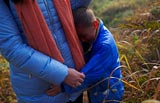
|

|

|

|

|
Today's Top News
No judgment yet on Sony; evidence awaited
Learning about 'Americanness' from Chinese-American vets
Alibaba IPO fuels startup boom to rival Silicon Valley
China's top Party offcial probed for disciplinary violations
No judgment yet on Sony
US arms sales to Taiwan protested
Chinese developer buys LA Marriott
Beijing seeks new tourism spotlight in New York
US Weekly

|

|
